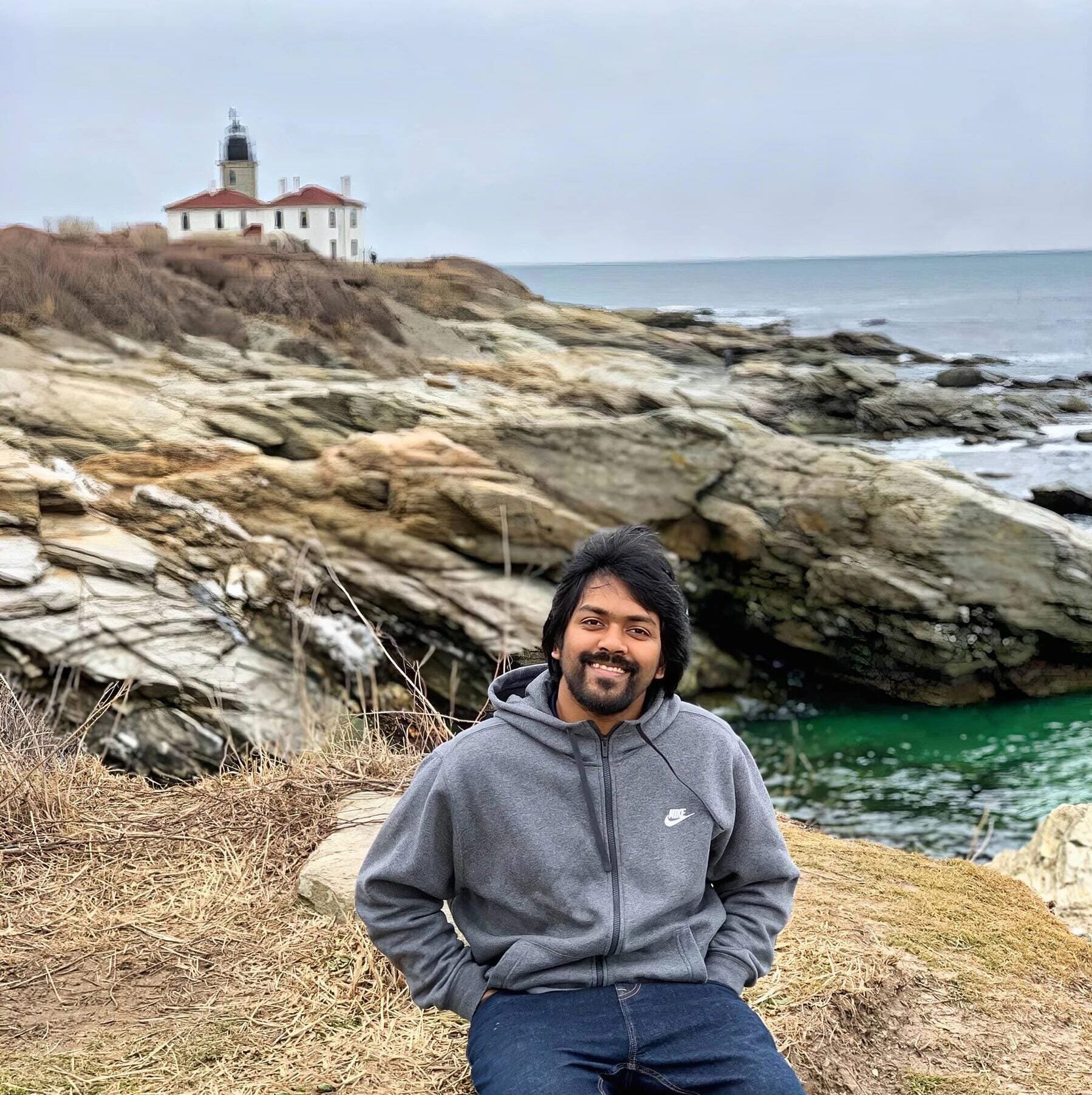May 8, 2024
While some may just want to rest after five and a half years of research, Mansur Ali Jisan is already looking for his next challenge.
“I’m spending more time thinking about how I can apply the insights I’ve gained through my dissertation research or perhaps find some new and interesting topics related to climate science,” said Jisan, a doctoral candidate in the University of Rhode Island’s Graduate School of Oceanography.
Jisan just completed defending his dissertation, which focused on understanding the impact of land roughness on hurricane wind structure during landfall. “I’ve developed a physics-based, 3D hurricane boundary layer (HBL) wind model to simulate these effects.”
He has worked with Isaac Ginis, professor of oceanography at GSO, analyzing the changes that take place in a hurricane when it moves over land, and how the local land cover types, such as buildings, forests, and vegetation affect speed. Jisan used numerical models to represent those physical processes to improve the forecast over the land surface. “We worked with the Department of Homeland Security to improve the forecasts so that we can use this wind data to determine wind hazards, plus the storm surge forecasting,” he said.
Jisan earned his bachelor’s degree in civil engineering from Dhaka, Bangladesh, and a Master of Science degree in coastal marine and wetland studies at Coastal Carolina University, where he continued his studies focusing on storm surge forecasting, sea level rise, and increased flooding conditions. He graduates from URI this month with a Ph.D. from the Graduate School of Oceanography.
In 2018, Jisan was invited to work with Ginis. “I was very excited; it inspired me to do some creative work in this domain,” Jisan said.
During that time, he mentored three undergraduate students while they visited Ginis’ lab. “It was a very rewarding experience because I learned so much from them,” he said. “I don’t feel as if I spent so much time teaching them, because I spent so much time learning from them. The ideas they generated really inspired me in my research.”
Jisan also became involved with a variety of climate change organizations, including Greenpeace and the Climate Reality Project led by former Vice President Al Gore. “It’s important to make people aware of climate change issues and how they’re affecting developing countries like Bangladesh,” he said. Jisan’s friends don’t know that he’s so passionate about climate issues, and that he’s very interested in educating the public about climate change.
“I feel that perhaps I didn’t do as much climate work while pursuing my doctorate due to research time, but now I’ll reignite my interest.” And is there still time to reverse the effects of climate change? “I don’t want to lose hope,” he said. “I think we can still work to reduce carbon emissions and reduce our footprint through our personal activities.
“More attention needs to be paid to developing nations on how we can make their communities more resilient by investing more money and building sustainable infrastructure against the climate change threat.”
Between his pursuit of his doctorate and his climate change activities, Jisan doesn’t have much free time. However, there was a period around 2021 when he found himself with two or three months of leisure as he waited for the next project to begin. It was then that he discovered photography, so he went out and bought a drone. His subject since then photographing lighthouses.
“Rhode Island is such a beautiful place, and we’ve so many beautiful lighthouses, especially Beavertail and Point Judith. Now I try to get out two or three times a week to take pictures.”
Jisan lives minutes away from the Bay Campus with his wife, Nadia, and their pet rabbit, Oreo. Nadia commutes to Boston University. Although it’s a long commute, the couple love living in their farmhouse. Meanwhile, he is contemplating his next move.
“I’ve been spending lots of time reading about different research topics like cloud modeling,” he said. “I find it really fascinating because now that I have gained this knowledge from URI about physical oceanography and the climate system, I feel more confident when I review any research fields.”
This story was written by Hugh Markey.

